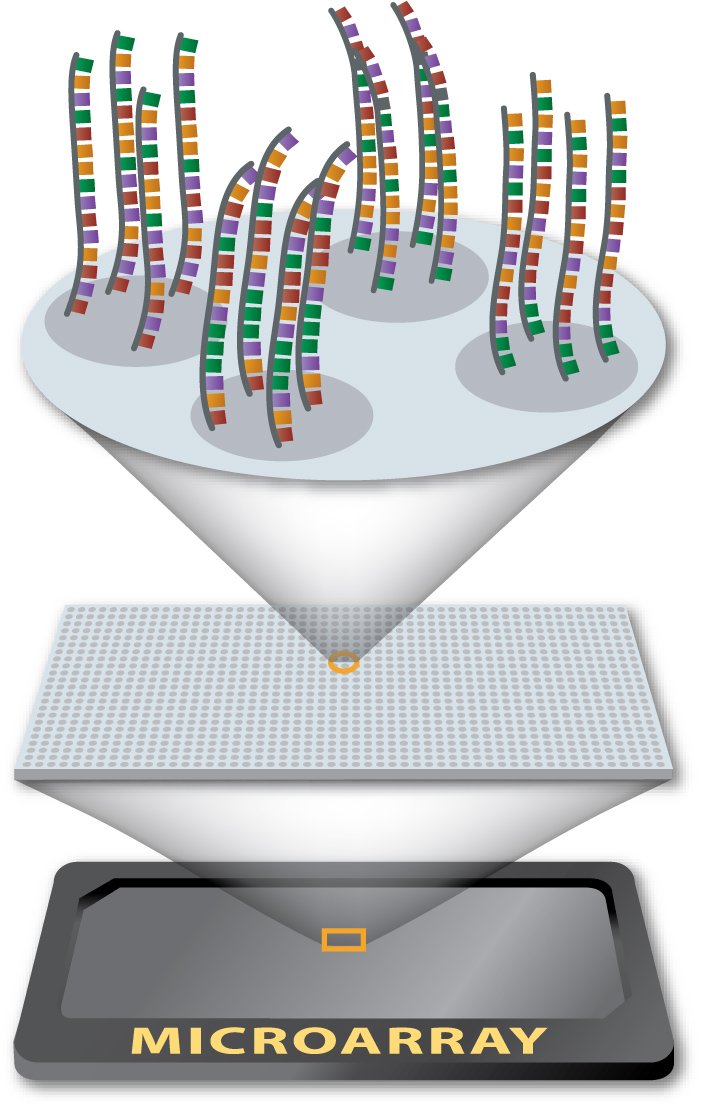DNA microarray analysis is one of the fastest-growing new technologies in the field of genetic research. Scientists are using DNA microarrays to investigate everything from cancer to pest control. Now you can do your own DNA microarray experiment! Here you will use a DNA microarray to investigate the differences between a healthy cell and a cancer cell.
DNA Microarray
Microarray Analysis
The human genome contains approximately 21,000 genes. At any given moment, each of our cells has some combination of these genes turned on, and others are turned off. How do scientists figure out which are on and which are off?
Scientists can answer this question for any cell sample or tissue by gene expression profiling, using a technique called microarray (pronounced MY-crow-ah-ray) analysis.
Microarray analysis involves breaking open a cell, isolating its genetic contents, identifying all the genes that are turned on in that particular cell, and generating a list of those genes.
DNA microarray analysis is a technique that scientists use to determine whether genes are on or off.
Scientists know a gene is on in a cell if its mRNA is present.
What is a DNA Microarray?
A DNA micorarray allows scientists to perform an experiment on thousands of genes at the same time.
- Each spot on a microarray contains multiple identical strands of DNA.
- The DNA sequence on each spot is unique.
- Each spot represents one gene.
- Thousands of spots are arrayed in orderly rows and columns on a solid surface (usually glass).
- The precise location and sequence of each spot is recorded in a computer database.
- Microarrays can be the size of a microscope slide, or even smaller.

Additional Resources
- Educator Resources from Affymetrix, a manufacturer of microarrays. Includes, among many other things, photographs, a description of Affymetrix's unique manufacturing method, and a discussion of ethics and policy issues. You can even order your own free demonstration microarray!
- Photo of a microarray manufactured by Agilent Technologies
- Fluorescent image of a microarray manufactured by Agilent Technologies
- Find out how DNA microarray analysis is being used tostudy insecticide resistance in African malaria-carrying mosquitoes.
